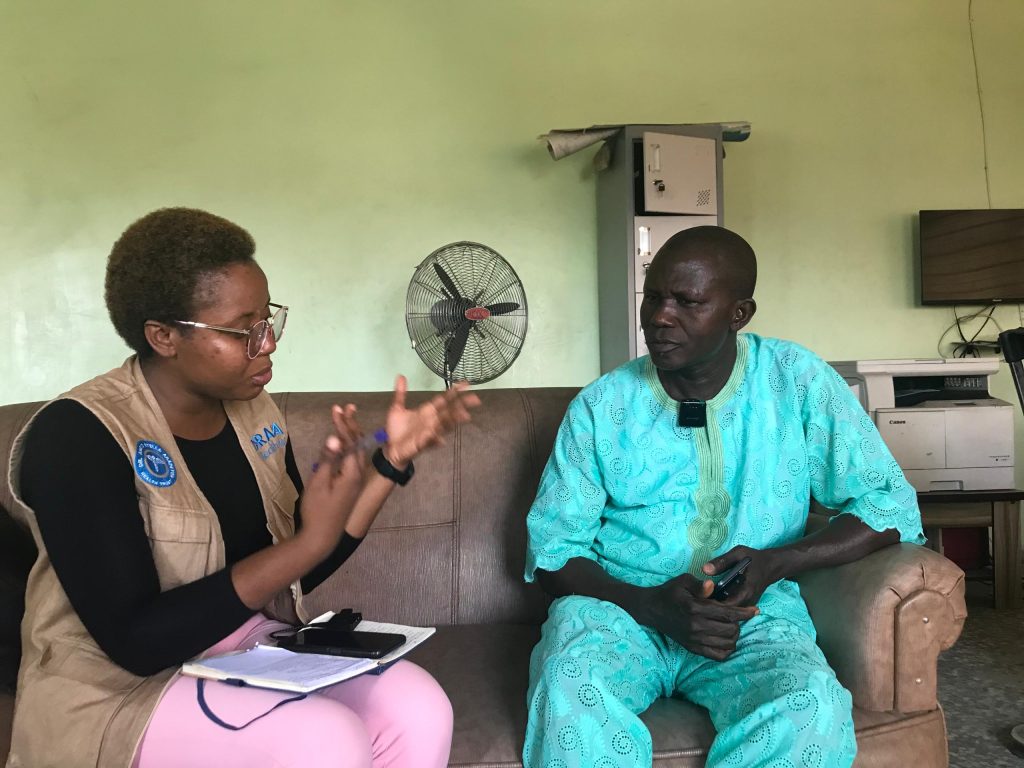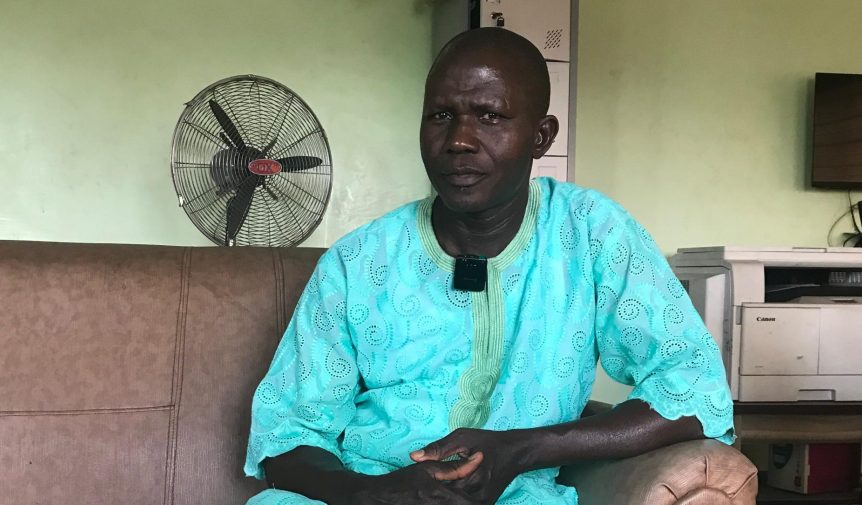The marketplace is a common ground for all individuals, regardless of socioeconomic status. What we consume in our homes or when we eat out comes from the markets; therefore, cleanliness is important to ensure overall health from the market stalls to our plates.
For the Butchers’ Association of Achakpo Slaughter Slab at Ajeromi Ifelodun Local Government Area (LGA) of Lagos State, Nigeria, food safety and general cleanliness of their stalls and the market have become priorities. Mr. Akinleye, one of the Health Champions who benefited from our SCKaR-IDP project, is the secretary of the Butchers’ Association at Achakpo Slaughter Slab.
In Akinleye’s words, “We ensure to only sell meat that is healthy after checking with the local officers that inspect these animals before we sell.”
What are some of the new skills or things you learned?
I have learned many things, especially about the importance of cleanliness in the market. I have also learned about carefully checking the kind of cow meat we buy, how to inspect the meat properly for any visible signs of disease, and what we can do when we discover that the meat or the animal is infected. I also learned that we need to call the local health officers to inspect the animals or the meat so that we do not buy infected meat that would spread diseases in the community.
How confident do you feel now about teaching others how to prevent the spread of diseases?
I am more confident about teaching people about health, especially after the engagement with DRASA. Whenever I see something that is not good, I always tell people and tell them the implications. “See something, say something." Since this training, I usually educate my colleagues to always wear their boots while on our job, and to also wash their hands after selling to a customer. I also spread this information to people around me.
Can you share a specific example of something you did in your community to spread the word about staying healthy after you became a Health Champion?
The training from the sensitization has not only impacted me but also the people around me. After the training, I started encouraging people in my association to practice cleaner habits. For example, we always wear a white uniform as butchers to protect the clothes we wear home from getting dirty. The cleanliness of the market is also better than it was before. We also now clean our work tables more regularly than we used to before.
What changes have you noticed around you since you started sharing what you learned?
What I have noticed so far is that the market is generally cleaner and when we see anyone that drops dirt on the floor, we always advise them not to and we pick up the dirt immediately and dispose of it, unlike before, when we would leave everything till our environmental day [once a week] to clean it up. Also, we only sell meat that is healthy, not just for our customers but for ourselves as well.
What challenges have you faced while trying to use what you learned in the community and how did you handle these challenges that made reception easier?
After training, we had an association meeting where we put down a rule that anyone who does not adhere to cleanliness in his or her stall will pay a fine. Some people proved stubborn initially, so we were asked to report any case of stubbornness and refusal to the association head. This made it easier for people to follow the rule since it was coming from the head and now there is a collective effort to ensure cleanliness in the market.
In the future, what role would you like to play in keeping your community safe and what would you like to see differently in your community when it comes to staying healthy?
In the future, I would like to educate more people, especially those in my area of work. I would like that there are more butchers like me educated about infectious diseases so that the message can be spread widely to people and we have more people in other locations as well so that together we can keep the community safe.

The Strengthening Community Knowledge and Response on Infectious Disease Prevention (SCKaR-IDP) Project, which focused on building community surveillance for infectious disease identification and reporting, was a life-changing experience for 2,089 community dwellers in Somolu and Ajeromi Local Government Areas in Lagos state. Want to know more? Click the link to watch this video.




